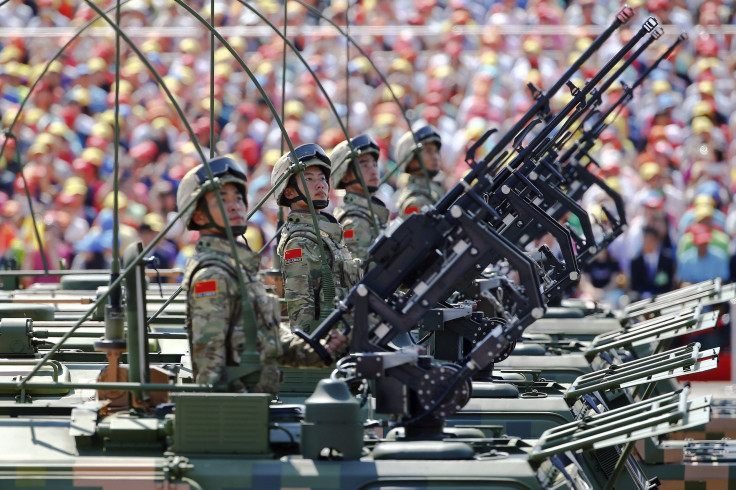Nuclear Deterrant Would Make China 'Think Twice' Before Invading Taiwan: US General
Credible Nuclear Deterrant Would Make China 'Think Twice' Before Invading Taiwan
KEY POINTS
- China is looking to expand its nuclear weapons stockpile
- Russia and China understand that the U.S. has a strong, resilient nuclear force that is offering deterrence
- China's nuclear threat cannot be addressed by duplicating the approach used toward Russia
The U.S. must seriously consider the threats that Beijing may use nuclear weapons, especially in a confrontation over Taiwan, and only a credible nuclear deterrent would stop them from doing so, a top air force general has said.
"If you have a credible deterrent, it would make them think twice before engaging with us," U.S. Air Force Gen. Anthony J. Cotton said Thursday while appearing before the Senate Armed Services Committee reviewing his nomination to lead the U.S. Strategic Command.
U.S. Strategic Command is one of 11 unified combatant commands of the Department of Defense tasked with the responsibility of nuclear deterrence, space and cyberspace capabilities.
In June 2022, Gen. Cotton received a nomination from President Joe Biden to serve as commander of the U.S. Strategic Command at the Offutt Air Force Base located in Nebraska.
Gen. Cotton said the U.S. nuclear force has worked as an effective deterrent in Russia's seven-month invasion of Ukraine.
"We did not see Russia do anything with our NATO partners. We may have heard the rhetoric, but I think at the end of the day, Russia and China both understand that we have a strong, resilient nuclear force that is offering deterrence to ourselves and extended deterrence to our allies," the general said.
Meanwhile, Ukraine's top general, Valeriy Zaluzhnyi, warned that Russia could use tactical nuclear weapons, which would create the risk of a "limited" nuclear conflict with other powers.
However, the nuclear threat posed by China cannot be sufficiently addressed by merely duplicating the approach that the U.S. took toward Russia, given that Washington is familiar with Moscow's nuclear aims as they date back to decades of the Cold War.
China and Russia "act differently, from a (nuclear) doctrine's perspective," the general told lawmakers reviewing his nomination at the Senate committee.
"We're going to have to understand more deeply the Chinese nuclear strategy," he added.
Unlike Russia, China was never a party to the arms-control regimes with the U.S. and Washington did not consider them with the same intensity as Moscow's nuclear arsenal.
The general said the U.S. now needed to recalibrate its nuclear defense strategy to account for China's fast-growing power, which has for the first time put the U.S. in a three-way nuclear competition.
China, which first exploded an atomic bomb in 1964, is the world's fifth nuclear-weapon state and has the world's third-largest stockpile. The United Nations figures say China has roughly 350 nuclear weapons today which they want to increase to around a thousand in a few years. Beijing has a goal of expanding its nuclear arsenal while also modernizing its strategic missile forces and nuclear submarine fleet.
Although China's stockpile of nuclear weapons is much smaller than that of the U.S., experts believe that Beijing may be reluctant to abandon the option of producing more fissile material for nuclear weapons as it may be concerned about the survivability of its nuclear forces.

© Copyright IBTimes 2025. All rights reserved.






















